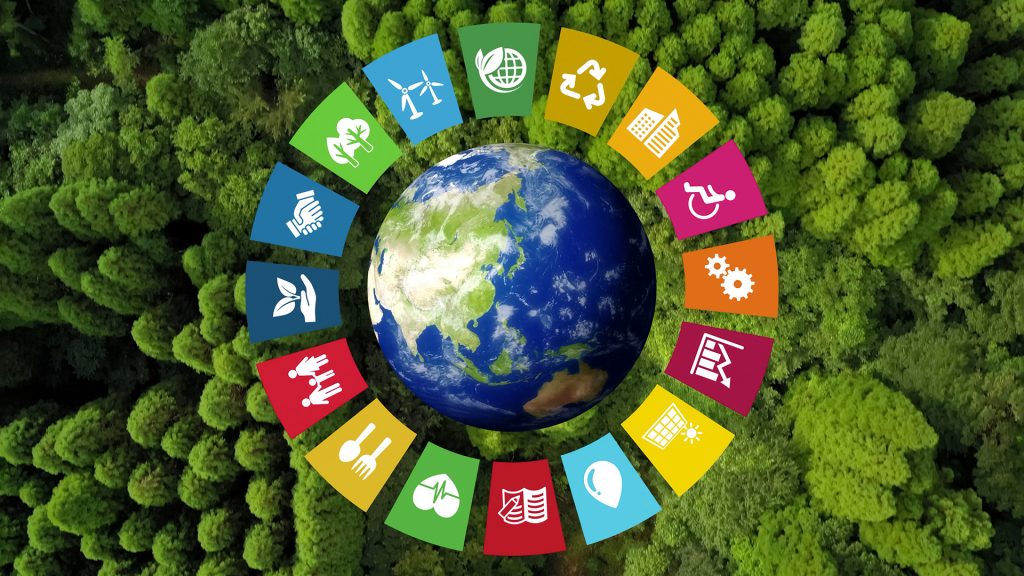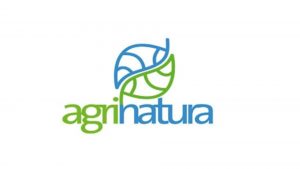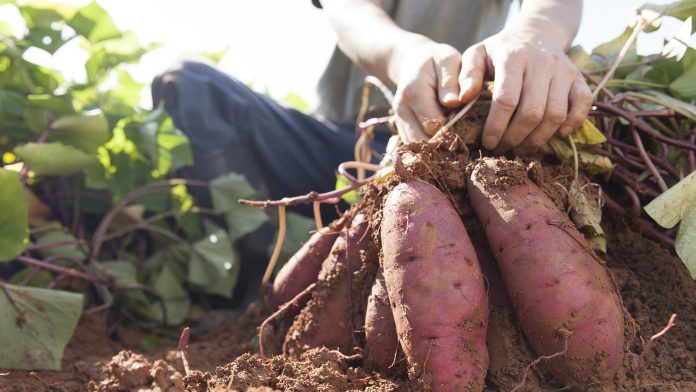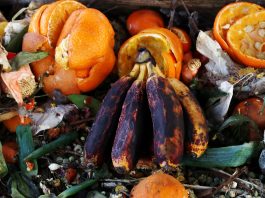Dr Stephen Onakuse, President of Agrinatura, outlines the efforts of the organisation in its mission to achieve sustainable agriculture practices across Europe.
Agrinatura, the European Alliance on Agricultural Knowledge for Development, is a major European research organisation committed to agricultural knowledge and education for research and development.
With the United Nations Sustainable Development Goals (SDGs) at the heart of its work, Agrinatura aims to provide knowledge to inform the development of innovation to tackle major global challenges such as poverty, economic growth, food security, and sustainability.
Innovation News Network spoke to Dr Stephen Onakuse, President of Agrinatura, about how the organisation works to ensure sustainable development in agriculture across Europe.
Can you explain more about the role of Agrinatura, its recent activities and achievements, and its key targets?
Agrinatura is a collaboration of European universities and research organisations with a common interest in supporting agricultural development in a sustainable manner. Currently, we have 36 member institutions from 17 European countries, with key partners including the European Commission (EC), the Regional Universities Forum for Capacity Building in Agriculture (RUFORUM), and the Food and Agriculture Organization of the United Nations (FAO). We also work with over 2,500 development-oriented researchers.
Agrinatura’s vision centres on building an “active European agricultural research area for development, responding to the common global challenges in partnership with the Global South.”
Working with international collaborators, we seek to nurture scientific excellence through joint research, educational programmes, and projects. We also strongly advocate for greater support for agricultural research and educational programmes to contribute to the achievement of the SDGs.
Alongside our members, we develop synergies and mobilise resources to support projects around the world. As an organisation, we collate research findings to influence decision-making in the European Union, and individual members play a similar role with respect to their own national governments.
We also work particularly closely with the EU Directorate-General on International Partnership (DG-INTPA) as a partner organisation with shared aims. We engage with policymaking bodies through the publication of policy briefs, including a recent brief on the EU’s Farm-to-Fork strategy under the European Green Deal. To assist in this process, we have an Advocacy Working Group.
How does Agrinatura work towards meeting the Sustainable Development Goals?
Agrinatura engages in capacity development projects, providing policy advocacy consultation to the European Commission (EC) and creating evidence-based knowledge activities for members. Our members are expected to subscribe to certain shared values, including a commitment to the Sustainable Development Goals, and to support the application of environmentally sound agricultural practices – especially for smallholder farmers.
We also engage with private sector R&D institutions through research projects, such as the EC-funded ‘Value chains for Development’ (VCA4D) initiative, and educational projects, including the ‘Participatory and Integrative Support for Agriculture Initiative’ (PISAI).
We deploy a diverse range of solutions through participatory action research to address knowledge gaps and deliver scientific expertise to support practitioners involved in the implementation of the SDGs. We also monitor change and adaptive management practices to build human, organisational and institutional capital to strengthen innovation capacities.
In collaboration with the European Forum on Agricultural Research for Development (EFARD), we have been contracted by EC/DG INTPA to implement the service facility DeSIRA-LIFT in support of the DeSIRA Initiative (June 2021 – May 2024). DeSIRA-LIFT will mobilise expertise to facilitate capacity building, lesson learning, synthesis building, and policy development related to agricultural research for development (AR4D) and agricultural innovation systems (AIS) in support of an agroecological transition of food systems in low- and middle-income countries.
We seek to combine sustainable development research and practice through social learning processes and facilitate practical system solutions across a diverse range of knowledge holders (academics, representatives of private and public sectors, civil society) to participate in foresight studies to analyse scenarios and help navigate plausible futures. This is achieved by combining scientific evidence and local experiences to foster the proposition of a variety of measures to solve a societal problem.
There is a growing interest in educational innovation in universities at a global level, as a tool designed to create strategic changes to improve quality in food systems training. We have identified a variety of trends and underlying issues driving food systems globally and have outlined recommended action points in our two position papers: Farm to Fork and Food Systems Summit. The observed trends include environmental and biophysical drivers; demographic drivers; advances in science, innovation, technology and infrastructures; economic, socio-cultural, and political drivers; market and consumer behaviour; sustainability; and globalisation. The commonly agreed action points from our dialogues include: intensified collaboration in agriculture and food system research; knowledge creation, education and innovation; resilience in food systems; re-localisation of food systems; translational multi-stakeholder approaches; demand-driven university research agendas; and user-led processes and capacity development of innovation systems.
Agrinatura strongly believes that, due to the holistic nature of food systems, the UN Food Systems Summit should focus on Higher Education and Research Institutions (HERI) to establish a common education reference framework to further the food systems transformation.
Areas for global collaboration must include: building a knowledge foundation to develop evidence-based scenarios for sustainable and resilient food systems; creation and dissemination of knowledge through higher education in ARD; development of a strong demand-led and transdisciplinary focus; translating knowledge to actions through transformation; develop foresight studies to analyse scenarios; and repurposing curricula at all levels to train future experts, entrepreneurs, practitioners and decision makers in systems thinking.
Agrinatura, therefore, calls on Food Systems Summit organisers to include research, innovation, development, and education in the action tracks. They must also ensure that the sustainable transformation of food systems is fair.

Caption: Agrinatura’s work is centred around the Sustainable Development Goals
What are the main challenges that need to be overcome in the journey to achieving sustainable agriculture?
The complex interrelations in achieving sustainable agricultural system practices, environmental degradation and climate change, and the global scale of commercial food value chains, create a variety of additional challenges. Such issues include increased social and economic vulnerabilities and inequities, livelihood stresses for farmers, disconnection between rural and urban areas, water- and food-related conflicts, and (forced) migration. Navigating and overcoming these obstacles requires a cohesive and collaborative approach.
There are always challenges to overcome and most of these include unhelpful attitudes, perceptions and individual agendas; conflicting epistemologies that result in disagreements; a lack of coherent shared framing; guarding objectivity; and the integration of methods.
What role can technology and innovation play in global biodiversity conservation?
Biodiversity remains the natural infrastructure that supports food, water and other species that sustain life on our planet. Managing biodiversity is an important area of conservation and Agrinatura has played and will continue to play a key role through the research activities of our partner network.
However, to achieve the desired result through efficient conservation of biodiversity resources, we must create new tools for better data collection, processing, and further application of new techniques for conservation and the inclusion of new technologies. The importance of technology cannot be overemphasised, particularly the use of bioremediation techniques – an advanced technology that uses using plants and microbes to extract metal contaminants, helping to re-wild damaged and contaminated habitats.
Natural technologies are readily available, affordable, and scaleable. Examples include the natural infrastructure for flood control, water conservation and quality, and other original carbon-capture technology.
What are Agrinatura’s recommendations on the role of research, innovation, and education to drive forward future sustainable food systems, as mentioned in the organisation’s statement on embracing the Farm to Fork strategy?
The holistic nature of food systems encompasses all activities from Farm to Fork, as well as related elements (environment, people, processes, institutions) in research and innovation.
Knowledge is the key lever for the food systems transformation. At Agrinatura, we believe that the framework of the SDGs should be continued in research and policy for assessing the relevance and sustainability of agricultural food systems transformations.
Research, innovation, and education play an important role in providing a common understanding and promoting the right action to tackle the pressing problems. Diverse knowledge holders should participate in foresight studies to analyse scenarios and help navigate a future focused on strengthening innovation capacities of societies. Academics should also take part in multi-stakeholder arrangements to support innovation and learning within food systems and use participatory approaches, linking academia with the rest of society (farmers, consumers, entrepreneurs, policymakers), to support the effective transformation of the Farm to Fork Strategy.
Higher education should re-purpose curricula to train future scientists, entrepreneurs, practitioners, and decisionmakers in systems thinking, multi-stakeholder collaborative approaches, adaptive management, and soft skills to strengthen the innovation capacity within the Farm to Fork Strategy.
In addition, academia and research funders should increase the appreciation and incentive structure for transdisciplinary research addressing societal dimensions within their priority setting.

Dr Stephen Onakuse
President
Agrinatura
https://agrinatura-eu.eu
https://www.linkedin.com/company/agrinatura/
https://www.facebook.com/Agrinatura
@AgrinaturaEu
Please note, this article will also appear in the ninth edition of our quarterly publication.









